Nick Cave And The Bad Seeds - Interview
by John Clarkson
published: 24 / 11 / 2008
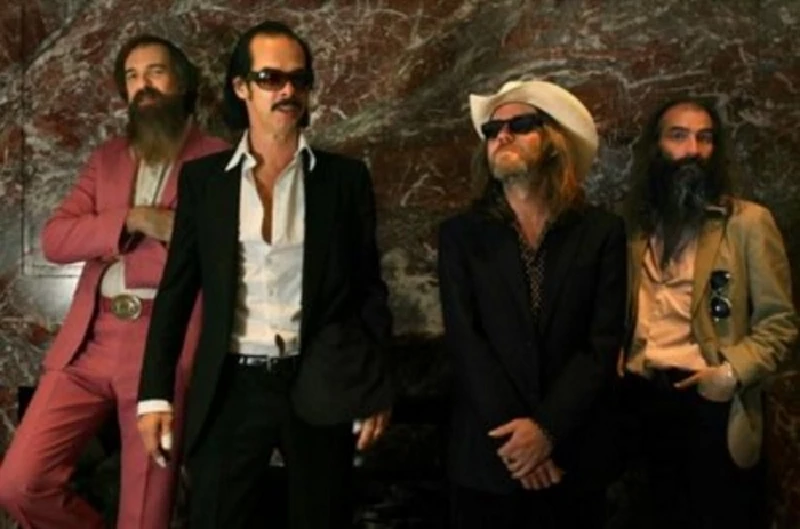
intro
Jim Sclavunos is the percussionist and drummer in Nick Cave and the Bad Seeds. He talks about working with Cave and the recent reformation of his early group, 70's No Wave punk band, the infamously atonal Teenage Jesus and the Jerks
Jim Sclavunos is the percussionist and drummer in Nick Cave and the Bad Seeds, a role he has held since 1994. Sclavunos first came to notoriety as one of the founders of the New York No Wave scene. In 1978 he was the bassist in Lydia Lunch's infamously atonal, but short-lived group, Teenage Jesus and the Jerks. He played drums for many other bands including Sonic Youth and the Cramps before joining the Bad Seeds. Since 2000 has also fronted his own project, the Vanity Set. Over the last few years the Bad Seeds have been through many changes. Founder member Blixa Bargeld left the group in 2003 after almost twenty years with the band. in 2006 Cave formed garage rock band and side project Grinderman with Sclavunos and Warren Ellis (electric bouzouki, violin) and Martyn Casey (bass), both of whom are also current members of the Bad Seeds. Grinderman's 2007 self-titled debut album saw Cave compose and play its songs on the guitar, an instrument he had rarely played, instead of his regular main instrument of the piano. Cave also plays the guitar on parts of the Bad Seeds' latest album, 'Dig, Lazarus, Dig !!!' (2008). Pennyblackmusic spoke to Jim Sclavunos shortly before a Nick Cave and Bad Seeds tour of Britain. PB : The Bad Seeds have been in various guises Nick Cave's backing band for years now. He is obviously a huge presence at the front of the stage. How much of a say does the rest of the band have in what goes into the music ? JS : I don't think that any of us including Nick see it as a backing band, if by backing band it is implied that there is not a lot of input from us. A backing band sometimes suggests to people a bunch of hired guns. They come in and execute the music with professional skills. We are not that. What we have in the Bad Seeds is actually a lot more of an organic thing, and, while Nick is of course the principal songwriter in the band, we work upon and create the songs together. PB : How are the lines drawn between the Bad Seeds and Grinderman ? Is there a difference ? JS : It takes much more effort with the Bad Seeds for us to come together and it, therefore, tends to be a more disciplined thing. There are more members and we have to cut to the chase a lot faster because there is always business to attend to, such as the making of an album or the doing of a tour. There is, however, also a legacy to the band. It has a natural continuity. You pick up from where you left off and you try to make something appropriate to the group, whereas with Grinderman it is such a new band that nothing is appropriate. No idea is too grandiose, too silly or too far afield. While it involves the same people, it is a very different kind of operation. PB : Nick has said that the new Grinderman album will have a totally different sound to its predecessor. What direction do you see the new album going in ? JS : A couple of people have mentioned that quote to me (Laughs), but is like so what ? Every album is different than the other ones. I wouldn't overly focus on that. I don't think there is much of a similarity between any of the Bad Seeds albums, so why should it be any different with Grinderman ? PB : Do you see Grinderman then as being a band of some permanency ? JS : You never know, but yeah. We really enjoy playing together and we really enjoy playing together in that configuration. I don't see that that is going to change, so, yeah, why not ? PB : Blixa Bargeld was a founding member of the Bad Seeds and played a big part in shaking the group's sound. How do you see his departure as having impacted on the band ? JS : There was history there so when he left it was a loss. It was also though an opportunity. I think that is generally how we take such things. We try to put a positive spin on it. It is great to have people there, but when they leave it is like, "Okay. That means that we can do things differently." I don't think that we believe in change for change's sake alone. The sheer novelty of change has never been the goal with the Bad Seeds. The goal is to develop and progress and the band is capable of a lot of diversity. Something like that just gives full expressive voice to all that diversity that the band potentially has. PB : You're an unusual band in that you're not just based in different countries but you are also based in different continents. The group at the moment has members who are based in Australia, Britain, Switzerland and the States. It must be hellish to meet up and rehearse. How does that all work ? JS : The only hellish part of it is if you are coming or going from Australia (Laughs). No, it is not really hard. We don't really allocate a lot of time to rehearsal. We have been playing together so long that generally people just plug in and sit down at their instruments and away we go. It doesn't take a lot of mental preparation. The gaps between tours and recording sessions are longish, but they are not that long. As we have been playing together for over fifteen years we know what to do by now (Laughs). PB : Nick has also recently started playing the guitar. How has that affected dynamics within the group ? JS : Well, certainly, he has another instrument in his arsenal and it is obviously a good prop as well as another instrument to play. A whole load of new stage moves have been formed (Laughs). Beyond that though, as he is still at the beginning phase with it, his guitar playing has a rawness that the other string players in the band don’t have because they have been at their instruments so many more years. It gives the music an edginess right away which has probably been lacking in our songs for quite a while just because the musicians are too accomplished to have that. It has really energised things on a primal level. We've always been a pretty edgy band anyway, but now there is a much more untamed element to it as well (Laughs). It is great for Nick too because, after all those years at sitting down at the piano, he was starting to feel that what he was contributing musically was getting not predictable, but becoming something of a trap. It didn't feel as fresh for him as an instrumentalist. There were habits, there were patterns he had fallen into. By switching to guitar he threw all those out of the window. It is an alien instrument to him so every day he sits down and plays he discovers something new whereas the piano had become quite familiar. Obviously if he takes a break from the piano he can come back to it with fresh ideas there as well. It has been exciting for him to have some other way of projecting music. PB : Teenage Jesus and the Jerks have reunited after a gap of thirty years. They recently played two shows in New York and will be playing in December their first ever UK show at an ATP Festival. Both you and Lydia Lunch are involved. Are you surprised at how fondly they have been remembered ? JS : I guess that I have seen it heading this way, but, yeah, it is surprising. We weren't really a popular band in our day. In fact we were distinctly unpopular(Laughs). It wasn't ever designed to be a popular band, so in a way I feel it almost seems like a betrayal of our legacy not to be playing in front of crowds of nine or eight people. It was always meant to be an affront, and at the time it was clearly nothing but an affront, not just to musical lovers in general, but especially to the punks because we out punked the punks in a way. Of course course time has marched on and what was unacceptable back then has become a bit more mainstream now. I don't really know what people are getting out of it. For me it is just enjoyable to be playing with Lydia again. I used to be the bass player and now I am filling in on drums for Bradley Field who has been deceased for many years. I couldn't think of anybody else that would really get it there in quite the same way that I know how it was and Teenage Jesus had a history of rotating bass players anyway. I was just the last in line. My predecessors were Reck and Gordon Stevenson and now we have Thurston Moore from Sonic Youth on bass. Of course we both know Thurston, as he was also part of the No Wave scene, so he seemed like a very natural choice. I think that the reunion in fact might have been his idea. PB : How did the two New York shows that you did go ? JS : We did the first night at the Knitting Factory, and it felt weird having people moshing and mouthing along and singing the words. It really was never meant to be something that appealed on that level (Laughs). PB : You were a group that was notorious as well for your 10 or 15 minute shows. JS : Well, that was just that for the outright hostility and aloofness we would show the audience. We had this pair of teenage girls, the Sidemen sisters, that used to stand at either side of the stage with baseball bats and anybody that tried to take pictures they would threaten them with those (Laughs). It wasn't ever really meant as an entertainment-like spectacle. It was much more a very stark moment of anti-music. There has been a lot of mythologizing about what we were and how we might have come across. Of course with things now being different it is never going to be exactly the same. At least though by playing together these updated shows, people will get some kind of bead on what we might have been like had they been born twenty years earlier or whatever, and what they might have expected to see. If they don't like it, that is fine because it was never meant to be liked (Laughs). PB : You also have your own project the Vanity Set with whom you have been with since 2000. Is this your first time as a front man ? JS : No, because actually the way I met Lydia was as a front man. I had a band called Me Me and the Dreamboats and we came very close to being signed, but there was an internal implosion in the band (Laughs) and it all fell apart before we could actually record anything. That was though the only other time I was front man. I started out as front man and my band members rebelled against me. Then I switched to drums because people always need drummers and I had always fancied it and I kept so busy with that for so many years that I never thought about being a singer again. Then we made a shitload of money when the Bad Seeds did that record with Kylie (‘Where the Wild Roses Grow’-Ed). Suddenly I found myself with some extra money for the first time in my life, and so I thought, "What will I do with this ?" and then I thought, "I'll invite a bunch of my friends down to make a record." That is how the Vanity Set happened. It is a very funny kind of band. We play together very rarely. It is a very infrequent thing. The live shows are pretty cool, but it is mainly about coming together in the studio and taking our sweet time to put together songs and to make recordings. They are always very eclectic. There is no continuity from song to song or from album to album. It is a very self-indulgent project, but we all take a great deal of pleasure in doing it. PB : With all these different musical projects going on, what do you see as your main priority ? Is it the Bad Seeds and Grinderman ? JS : You could put it that way. I want to make music and to work with other musicians as often I can. I produce a lot of stuff too. I am going into the studio this weekend, for example, with an old friend, Alice Texas. She's been working on a rather lengthy album for a long time now. It is a very low budget thing, but she is aiming to make it a double album. I have also been doing some recording recently with Cynthia Sley from the Bush Tetra . My main priority is to stay really busy as a musician and, when Nick comes calling , that is basically my main gig because we do such a lot together. Nick has been in overdrive for the past few years. He is constantly engaging in new projects, everything from soundtracks to theatre music. Now we have two bands and I want to stay busy, so if he can make me busy I am all for it. PB : Thank you for your time. Thank you to Peter Allison, Dan Cressey, Ben Howarth, Jon Rogers, Dominic Simpson and Helen Tipping, all of whom contributed questions for this interview.
Band Links:-
http://nickcave.com/https://www.facebook.com/nickcaveofficial
https://twitter.com/nickcave
http://www.songkick.com/artists/457613-nick-cave
https://www.youtube.com/c/nickcave
https://www.instagram.com/nickcaveofficial/
Picture Gallery:-
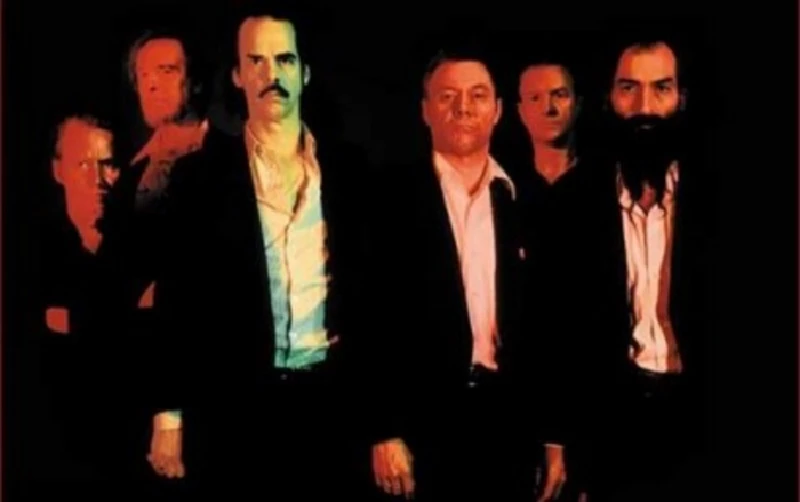
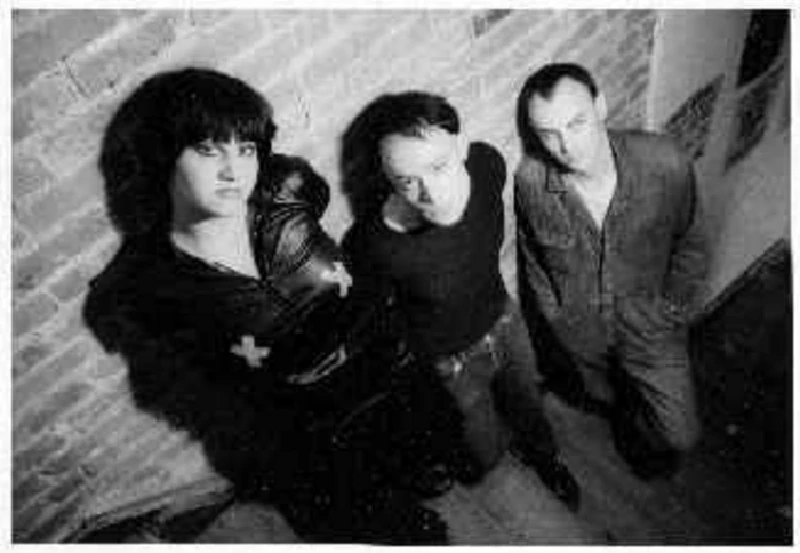
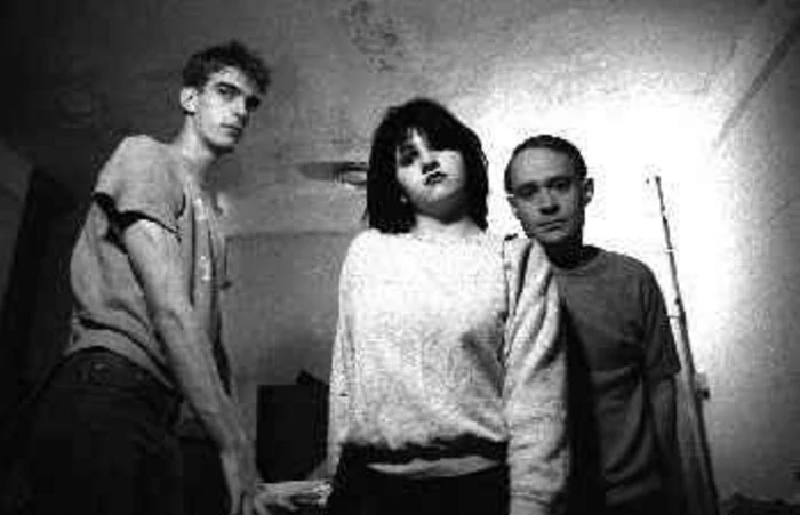
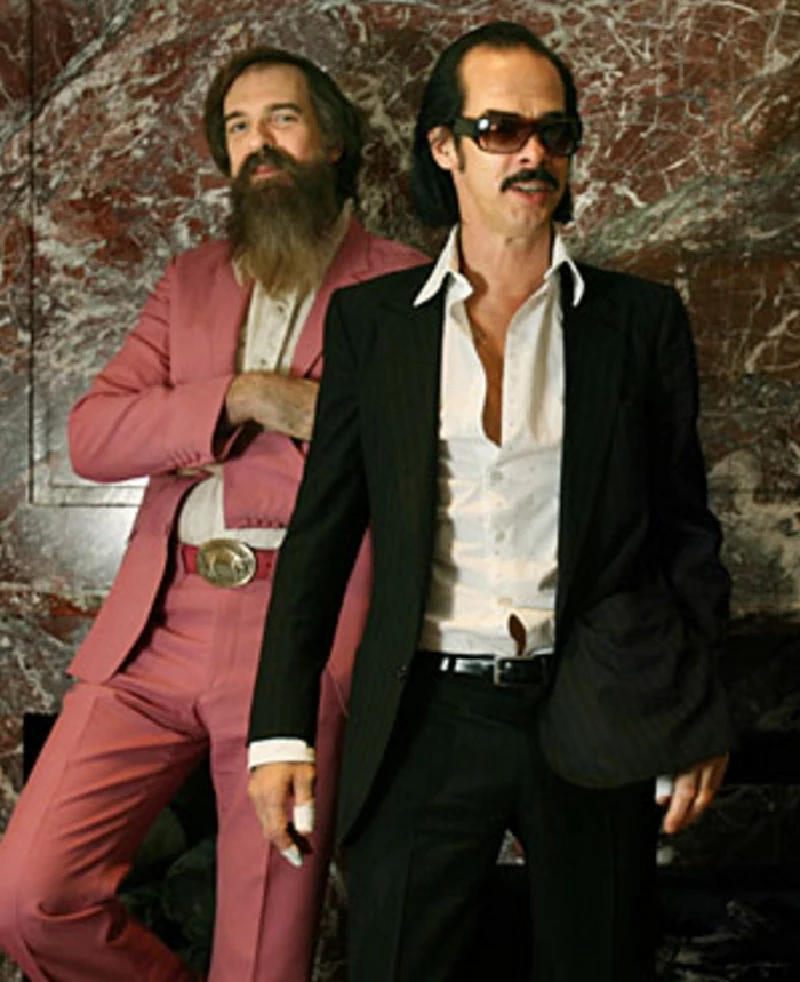
profiles |
|
Bleddyn Butcher: A Little History – Nick Cave and Cohorts, 1981 – 2013 (2014) |
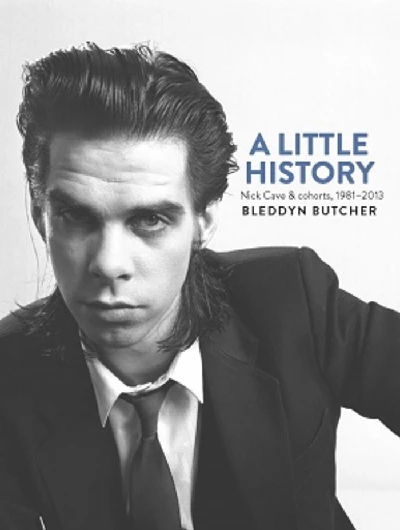
|
| Melanie Smith is impressed by Bleddyn Butcher's new book of photography which documents Nick Cave's career from the early 1980s to the present time |
| Nick Cave and the Bad Seeds (2010) |
features |
|
Where Did It All Go Wrong, Nick Cave? (2013) |
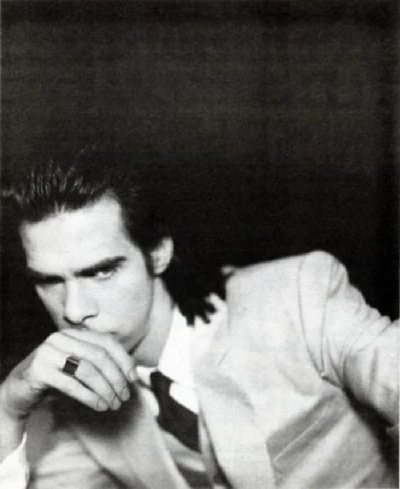
|
| In 'Hitting the Right Note', Jon Rogers, after listening to Nick Cave and the Bad Seeds' latest album 'Push the Sky Away', asks where it all went wrong for Cave |
| Nick Cave and the Bad Seeds, Surbiton Assembly Rooms, Surbiton, 1984 (2013) |
soundcloud
reviews |
|
Push the Sky Away (2013) |
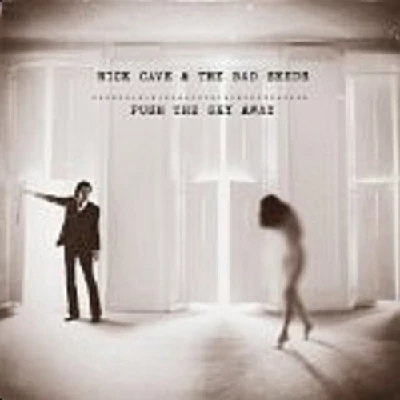
|
| Enthralling fifteenth album from Nick Cave and the bad seeds, which reflects on the invasive influence of the interent on 21st century culture |
| B Sides And Rarities (2005) |
| He Wants You Babe / Babe Im On Fire (2003) |
| Nocturama (2003) |
most viewed articles
current edition
Carl Ewens - David Bowie 1964 to 1982 On Track: Every Album, Every SongArmory Show - Interview with Richard Jobson
John McKay - Interview
Colin Blunstone - Thalia Hall, Chicago, 16/7/2025
Billie Eilish - O2 Arena, London, 10/7/2025
Bathers - Photoscapes 1
Loft - Interview
Visor Fest - Valencia, Spain, 26/9/2025...27/9/2025
Sir Tim Rice - Interview
Robert Forster - Interview
previous editions
Manic Street Preachers - (Gig of a Lifetime) Millennium Stadium, Cardiff, December 1999Heavenly - P.U.N.K. Girl EP
Beautiful South - Ten Songs That Made Me Love...
Peter Perrett - In Dreams Begin Responsibilities Interview Part One
Boomtown Rats - Ten Songs That Made Me Love....
Oasis - Oasis, Earl's Court, London, 1995
Coldplay - Wembley Arena. London, 16/8/2022
Trudie Myerscough-Harris - Interview
Prolapse - Interview
Pixies - Ten Songs That Made Me Love...
most viewed reviews
current edition
Davey Woodward - Mumbo in the JumboSick Man of Europe - The Sick Man of Europe
Lucy Spraggan - Other Sides of the Moon
Phew, Erika Kobayashi,, Dieter Moebius - Radium Girls
Suzanne Vega - Flying With Angels
Bush - I Beat Loneliness
Amy Macdonald - Is This What You've Been Waiting For?
Alice Cooper - The Revenge of Alice Cooper
Blueboy - 2
Cynthia Erivo - I Forgive You
Pennyblackmusic Regular Contributors
Adrian Janes
Amanda J. Window
Andrew Twambley
Anthony Dhanendran
Benjamin Howarth
Cila Warncke
Daniel Cressey
Darren Aston
Dastardly
Dave Goodwin
Denzil Watson
Dominic B. Simpson
Eoghan Lyng
Fiona Hutchings
Harry Sherriff
Helen Tipping
Jamie Rowland
John Clarkson
Julie Cruickshank
Kimberly Bright
Lisa Torem
Maarten Schiethart